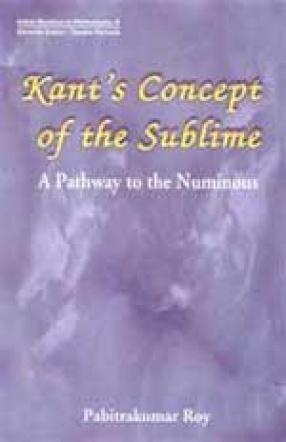Kant’s Concept of the Sublime: A Pathway to the Numinous focuses attention on Kant’s concern with the problem of moral motivation, the significance of the aesthetic experience, particularly the experience of the sublime in terms of his overall concern with morality. As the Sublime is considered in the context of moral motivation, this is a new approach. The work argues that the importance of knowledge of the existence of a supersensible ground of ourselves and our actions lies in its role as motivation. There is a gap between objectively conceived principle and subjective motivation. The aesthetic experience of the Sublime provides an experience that helps fill this gap. There is a moral feeling that precedes the Categorical Imperative in spite of the second Critique’s argument that the feeling of respect follows from awareness of the moral law. The aesthetic experience is a phenomenon of the utmost existential importance. For Kant the aesthetic experience specially the experience of the Sublime, is phenomeno-logically important to him, as it helped in pursuing his life long moral project. The Kantian corpus heightens his concern with the problem of moral motivation and his thought on feeling a motive capable of moving the existing individual to subordinate the fulfillment of the subjective desire in favour of the objectively conceived universal law. Once this concern is properly understood, Kant’s importance to the connection between the feeling of the Sublime and our awareness of our known supersensible faculty becomes clear. The publication of this book coincides with the commemoration of 200 years of Kant’s death.
Mapping the Bodhicaryavatara: Essays on Mahayana Ethics
Mapping the Bodhicaryavatara ...
$65.70
$73.00








There are no reviews yet.